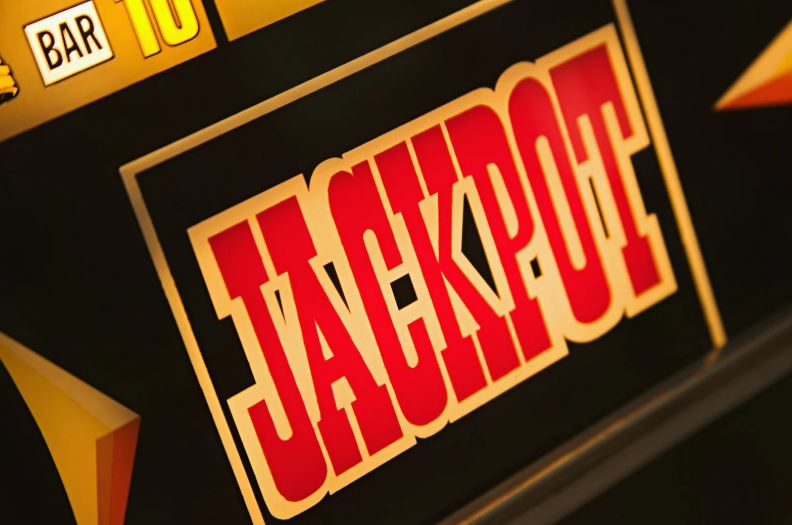
What Are The Odds Of Winning A Jackpot On A Slot Machine?
When you see colourful slot machines online or in a casino, it is natural to wonder whether there is a real chance of hitting one of those headline jackpots.
Many players are unsure how slots work, what those prizes represent, or how likely they are to see a jackpot themselves. Terms like RTP and volatility can sound technical, but a few basics clear up the common misconceptions.
If you want to understand what really affects the odds of landing a jackpot, and why it is not as straightforward as it looks, read on.
What Are The Chances Of Winning A Jackpot?

The odds of winning a jackpot on a slot machine are set by a Random Number Generator, often called an RNG. It makes every spin independent and unpredictable. No one can forecast when a jackpot will land, and the software that determines outcomes is tested to strict standards.
You will usually see a Return to Player percentage, or RTP, shown on a slot. This is a long-term average across huge numbers of spins, not a promise for any individual session. For example, a slot with a 95% RTP is expected to pay around £95 for every £100 wagered over time, but short sessions can be far above or below that figure, and jackpot wins sit at the rarest end of the scale.
Jackpots come in two main forms. Fixed jackpots pay a specific amount when the required outcome occurs. Progressive jackpots grow with each eligible bet placed on the network until someone wins. The odds for large progressives can be steep, sometimes in the region of 1 in several million to tens of millions. These figures are not usually displayed in-game, so the paytable and information pages are the best place to see how a particular jackpot works.
If you try your hand at jackpot slot games, remember to do so responsibly and within your means; never wager more than you can afford to lose.
What Triggers The Jackpot On A Slot Machine?
A jackpot is triggered by conditions set out in the game rules. In some slots, it is tied to a specific symbol combination. In others, it appears through a bonus feature, such as a prize wheel that includes one or more jackpot segments. Many progressives can also be awarded at random on any eligible spin, without a special symbol showing at all.
Stake requirements vary by game. Some jackpots are available at any stake, while others require a minimum bet or the maximum stake to be eligible. The paytable and help section explain these details, including whether a jackpot is fixed or progressive and how the trigger works in that title.
Because each spin is generated independently by the RNG mentioned earlier, there is no way to influence when those conditions occur.
Play Slots & Online Casino Games
Can You Tell When A Slot Machine Is Going To Hit?
No. There is no pattern, timing trick, or machine behaviour that reveals when a payout or jackpot is coming. Each result is produced at the moment you press spin, and previous outcomes have no bearing on the next one. A slot is not “due” to pay, even if it has not awarded a prize for a while.
RTP and volatility can help set expectations about the general feel of a game. RTP describes the long-term average return, and volatility indicates how that return might be distributed, whether in smaller frequent wins or occasional larger ones. Neither tells you what will happen in a short session, and neither can be used to predict a specific spin.
Are Slot Machine Jackpots Random?

Yes. Jackpot outcomes follow the same principle as all other slot results. The RNG selects results independently, and the game’s rules decide how a jackpot can be awarded, whether by a symbol combination, a bonus round, or a random event that can occur on any eligible spin.
Regulated games are tested to confirm that results do not form patterns and cannot be influenced. The paytable will also state any eligibility rules, such as minimum stakes or feature requirements, so players know exactly what conditions apply.
It might be worth remembering that figures like RTP and volatility are theoretical measures derived from extensive simulated play. They can be useful for understanding a game’s design, but they are not predictive of short-term outcomes.
What Happens If You Hit Jackpot On A Slot Machine?
If a jackpot hits online, the game highlights the win and shows the full prize amount. Winnings are added to your account balance, and you can then withdraw or continue playing as you prefer. Withdrawals typically use the same method as your deposit wherever possible, and larger sums may involve standard verification checks for security. Processing times vary by operator, but UK Gambling Commission (UKGC)- licensed brands are expected to pay without unnecessary delay.
Progressive jackpots can involve additional confirmation steps, especially for very large amounts. You may be contacted to complete identity checks, and payment can be made in a lump sum or as set out in the game’s terms. The exact process is explained in the casino’s withdrawal policy and the jackpot’s rules.
In a physical venue, staff will verify the win and arrange payment by cash or bank transfer, depending on the amount and the venue’s policy. At UKGC-licensed casinos, valid jackpot wins are honoured in line with the published rules and the operator’s obligations.
Jackpots are rare by nature, but if one lands, the process is designed to be clear and secure, and knowing how it all works helps set realistic expectations before you potentially engage in play. Always keep responsible gambling practises in mind.
**The information provided in this blog is intended for educational purposes and should not be construed as betting advice or a guarantee of success. Always gamble responsibly.
*All values (Bet Levels, Maximum Wins etc.) mentioned in relation to these slot games are subject to change at any time. Game features mentioned may not be available in some jurisdictions.






























































